Welcome to IDDEAS@Wharton!
Welcome to the the 11th annual Introduction to Diversity in Doctoral Education and Scholarship (IDDEAS@Wharton) program, where you will gain valuable insights into the power of a PhD from faculty, current PhD students and dynamic discussions.
WHERE IS THE LOCATION FOR IDDEAS?
Unless noted in the agenda, all sessions of IDDEAS will be held in Academic Research Building, Room 401 which is on the 4th floor in the department of Statistics & Data Science.
If you’re not familiar with Penn’s campus, the address of the Academic Research Building is 265 37th St Walk, Philadelphia, PA 19104.
The Academic Research Building is at the corner of 37th Street Walk and Spruce Street, outside of the 37th Street Trolley Stop.
WHAT ARE POLICIES OF THE PROGRAM?
IDDEAS@Wharton scholars are required to attend all of the sessions and complete the assignments in order to receive your certificate at the end of the program. Arriving late to any sessions or leaving early will jeopardize successful completion of the program.
WILL THE EVENT BE RECORDED?
Due to the purposeful design of the program, all IDDEAS events will NOT be recorded. Unauthorized student recording is prohibited. Unauthorized recording is unethical and may also be a violation of University policy and state law.
WHAT IS THE ATTIRE FOR IDDEAS@WHARTON?
All events are casual. Students should dress comfortably and appropriately for small seminar settings with faculty, staff, and graduate students.
IS IT POSSIBLE TO TOUR CAMPUS?
Yes! If you have personal time available either before or after IDDEAS, you are welcome to join a tour of Penn: https://admissions.upenn.edu/admissions-and-financial-aid/visit-penn. You are also welcome to take a virtual tour of the University of Pennsylvania.
WILL THIS PORTAL REMAIN AVAILABLE AFTER IDDEAS@WHARTON?
No, this portal will only be available one week following IDDEAS. After that time the portal will be archived and disabled. Save any files or pertinent information from the portal before April 26th.
2024 IDDEAS@Wharton Scholar Bios
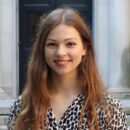
Ainsley Dean
BIOGRAPHY
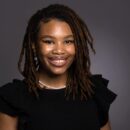
Ericka Drinker
BIOGRAPHY
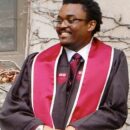
Alonzo Finch
BIOGRAPHY

Courtney Fitzgerald
BIOGRAPHY
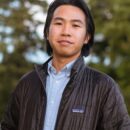
Aditya Gunawan
BIOGRAPHY
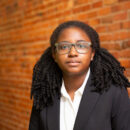
Ana Herndon
BIOGRAPHY

Ian Kung
BIOGRAPHY

Arely Lopez
BIOGRAPHY
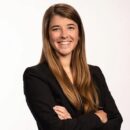
Samantha Mackley
BIOGRAPHY
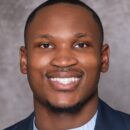
Jubelo Oyeniran
BIOGRAPHY
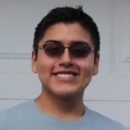
Derek Sanchez
BIOGRAPHY
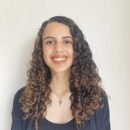
Sofia Silvosa
BIOGRAPHY
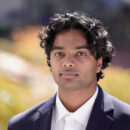
Mark Thomson
BIOGRAPHY
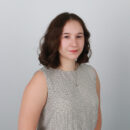
Emily Uzner
BIOGRAPHY

Zhuoli Xie
BIOGRAPHY
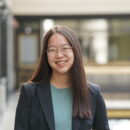
Jemima Yoon
BIOGRAPHY
Administrator Bios
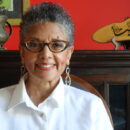
Anita Henderson
BIOGRAPHY
ANITA HENDERSON, PhD
Senior Fellow, The Wharton School
Email: henderso@wharton.upenn.edu
Anita has a BA in English from Adelphi University in New York. MA in Linguistics from the University of Kansas, and a PhD in Linguistics from the University of Pennsylvania. Her research interests focus on African American Vernacular English (AAVE) and attitudes toward AAVE. Her dissertation is entitled “Is Your Money Where your mouth is?: Hiring Managers’ attitudes toward African-American Vernacular English.” She is also the author of “What’s in a Slur?” (2003, American Speech).
Anita retired from full-time work from the Wharton School in 2017, but continues to support diversity and other projects for Wharton. Prior to her retirement, Anita was the Senior Director for the Deputy Dean who oversees academic and faculty affairs at the undergraduate, MBA, and doctoral levels at Wharton. In 2012, with Maggie Saia and Professor Eric Bradlow, she co-created the Introduction to Diversity in Doctoral Education and Scholarship (IDDEAS program) which presents its eighth class in April 2021.
In 2020, “Intended Consequences,” was published in www.kwelijournal.org, Anita’s personal essay about race, health policies, and the tuberculosis epidemic in the early 1900s.
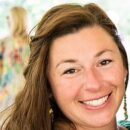
Maggie Saia
BIOGRAPHY
Maggie Saia
Director, Wharton Doctoral Programs
Director, IDDEAS
Email: msaia@wharton.upenn.edu
Maggie received her BA in English from East Carolina University and MA in Writing Studies from St. Joseph’s University. As an undergraduate Maggie also studied at the Universitat de Barcelona.
For the Wharton School, Maggie is the Director of Wharton Doctoral Programs (WDP) managing projects and operations for admissions, administration, and prospective, current and postdoctoral student affairs. With Dr. Anita Henderson, Maggie is the Co-Creator and Director of the Wharton IDDEAS program.
In addition, Maggie has taught Introduction to Civic Engagement at Drexel University and English Composition at the Community College of Philadelphia.
Outside of work Maggie likes to spend time with her husband and 2-year-old daughter, Odette. They are currently restoring an old farm house from 1752.
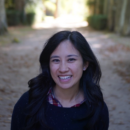
Gidget Murray
BIOGRAPHY
GIDGET MURRAY
Director, Wharton Doctoral Programs
Email: gmurray@wharton.upenn.edu
Gidget Murray serves as the Director of the Wharton Doctoral Programs. Gidget serves on the committee for the Wharton Intergroup Dialogue & Inclusions Team (WIDIT), which aims to create an educational space for the staff at Wharton where conversations around inclusion, diversity, and community can flourish, enrich work and personal lives, and to practice and model behavior of being open-minded, curious and solution oriented.
Her main roles consist of PhD student and academic affairs. She has previously served Holy Family University as the Associate Director of Graduate and Extended Learning Admissions. She received her Master of Education with a focus on Math from Holy Family University and her Bachelor of Science in Business Administration from Saint Joseph’s University. She has a strong passion for higher education, specifically working with graduate students, and lifelong learning.
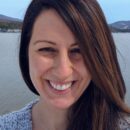
Britton Helmuth
BIOGRAPHY
Britton Helmuth
Administrative Coordinator, Wharton Doctoral Programs
Email: helmuth@wharton.upenn.edu
Britton has been a part of Wharton for 15 years and has recently joined the Wharton Doctoral Programs Office as the Administrative Coordinator. She supports activities related to prospective and current Wharton Doctoral students, assists in the coordination of Wharton Doctoral Programs events, and supports the development and management of new programs and other special projects.
Britton spends as much free time as possible with her son, nieces, and nephews. She enjoys going to Phillies games, thrifting, and renovating vintage dollhouses.
ACCOUNTING
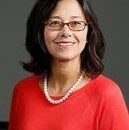
Jennifer Blouin, PhD
Richard B. Worley Professor of Financial Management, Professor of AccountingRESEARCH INTERESTS & WORDS OF WISDOM
https://accounting.wharton.upenn.edu/profile/blouin/
Research Interests: effects of taxes on asset pricing, taxation, taxes and corporate payout behavior
Professor Jennifer Blouin’s research centers on the role of taxation in firm decision making.
Professor Blouin studies taxation in many contexts, including capital structure, asset pricing, payout policy and multinational firm behavior. Professor Blouin’s research has been published in top-tier academic journals including Accounting Review, Journal of Accounting Research, National Tax Journal and the Journal of the American Taxation Association. She has received funding from the Rodney L. White Center for Financial Research, the Global Initiatives Research Program and the International Tax Policy Forum. In addition, Professor Blouin is a 2009-2010 Golub Faculty Scholar.
Professor Blouin teaches taxation to undergraduate, MBA, and PhD students. She received her PhD in Accounting from the University of North Carolina- Chapel Hill and her BS from Indiana University – Bloomington.
1. Where did you go to undergraduate school and what was your major?
Indiana University, BS in Accounting
2. What inspired you to get a PhD?
A faculty member that served as a mentor while I was an undergrad. He taught me about his research.
3. What do you enjoy most about research?
A well-thought-out research design that answers an interesting research question. I love a paper where I learn something new.
4. Why do you think academia is a good career?
Academia is a very entrepreneurial career – without the salary risk. When I am not teaching, there is very little structure to my day to day activities (but for service commitments). I am able to select what topics I want to work on. That said, I have to have the discipline to set deadlines and goals for myself.
5. When you are reviewing doctoral applications of students, what are you looking for beyond their academic record?
Solid quantitative skills. Pursuing a PhD is about developing a research tool kit. The economics and econometric curriculum requires students to be able to cope with some fairly sophisticated mathematics. I like to see applicants that have taken the initiative to take some advance calculus and/or linear algebra before applying.
APPLIED ECONOMICS
BUSINESS ECONOMICS & PUBLIC POLICY
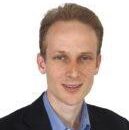
Arthur van Benthem, PhD
Associate Professor of Business Economics and Public PolicyRESEARCH INTERESTS & WORDS OF WISDOM
https://bepp.wharton.upenn.edu/profile/arthurv/#
Research Interests: environmental economics, energy economics, public economics
Arthur van Benthem is an Associate Professor of Business Economics and Public Policy at Wharton. His research specializes in environmental and energy economics. His recent work studies the unintended consequences of environmental legislation and the economic efficiency of energy policies. His current research focuses on markets for transportation, renewable energy and oil & gas.
He also writes for general audiences about economics, energy and the environment. His columns have appeared in the Boston Globe, the Economist, the Philadelphia Inquirer, and the Wall Street Journal, among others.
Before pursuing his doctoral studies at Stanford, he worked in various rolls at Royal Dutch Shell, most recently in corporate strategy as an energy economist in the Long-Term Energy Scenarios Team. During his Undergraduate studies, Arthur enjoyed working as an evening stock trader at IMC Trading in Amsterdam.
1. Where did you go to undergraduate school and what was your major?
I went to the University of Amsterdam, majoring in Econometrics.
2. What inspired you to get a PhD?
I had always been passionate about renewable energy and the environment, and wanted to pursue a PhD in Economics since this field is immensely useful for studying environmental issues.
3. What is the most important (or an important lesson) you learned from a mentor(s)?
How to manage my time effectively, and when and how to say no. Academia brings a lot of freedom but also
‘never ends’, so you need to set your own boundaries.
4. What is an important lesson you learned from your students?
That ‘textbook economic solutions’ are a useful starting point for discussions about environmental policy, but that a ‘second-best solution’ is often preferred if the alternative is political deadlock. My research focuses on such second-best policies, some of which are much better than others.
5. What do you know now that you wished you knew when you were pursuing your doctoral degree?
That it is worthwhile investing a lot of time in technical courses like advanced programming, modeling and machine It is much easier to learn new ‘hard skills’ during your PhD trajectory than afterwards, given the many competing demands on your time as a faculty member.
6. What do you enjoy most about research?
The sense of complete independence. I set my own agenda, decide what topics to work on, where and how much to travel, and what responsibilities to take on. That is truly quite unique about academia vs. the corporate or public sector.
7. Why do you think academia is a good career?
Being in academia allows me to contribute to society by training large groups of students who will end up taking important jobs and make decisions that affect the environment. I see it as a great responsibility to teach them in ways they will remember much later in their careers, and hopefully help them make decisions that take the environment into account. The interactions between academics and policy makers also make academic research useful and impactful.
8. When you are reviewing doctoral applications of students, what are you looking for beyond their academic record?
A statement that expresses some maturity and focus with respect to why they want to pursue a PhD, and what types of research fields and questions truly motivate them. To state the obvious, though, strong letters from recommenders who know you well probably add most to your academic record.
9. What is your philosophy about advising doctoral students?
I try starting an advising relationship in the summer after the first year. I advise students on their first independent research paper and also co-author a paper with them. My goal for each student is to have a solid portfolio of several research papers ready when they go to the academic job market.
10. What is your advice to doctoral candidates as they begin their job searches?
Don’t forget to enjoy the job search process. This is a unique period in which many smart people are interested in you and your work, and besides the pressure of the market this is also a period to learn and form new connections.
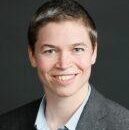
Susanna B. Berkouwer, PhD
Assistant Professor of Business Economics and Public PolicyRESEARCH INTERESTS & WORDS OF WISDOM
https://bepp.wharton.upenn.edu/profile/sberkou/#
Research Interests: Development economics, Energy and environmental economics, Political economy, Psychology and Economics
Susanna B. Berkouwer is an Assistant Professor of Business Economics and Public Policy at the Wharton School, teaching Managerial Economics in the Wharton MBA program.
Susanna specializes in energy, environment, and development economics. Current research projects include energy efficiency adoption, the economic impacts of power outages, the political economy of infrastructure construction, climate change and electricity consumption, and carbon taxes under credit market failures.
Susanna is affiliated with Wharton’s Business, Climate, and Environment Lab and the Penn Development Research Initiative.
Susanna holds a PhD from UC Berkeley, an MA from Yale University, and a BSc from the University College London. They previously worked as a Research Fellow at Harvard University’s Evidence for Policy Design and as a trade finance analyst at Citibank in London, Johannesburg, and Nairobi.
1. Where did you go to undergraduate school and what was your major?
University College London in London, United Kingdom. Major in statistics, minor in economics.
2. What inspired you to get a PhD?
I have always really enjoyed thinking about topics rigorously and analyzing data, especially in a more slow- paced way – where you can really drill down into the details – rather than the fast-paced business world. I worked as a research fellow for a year and really enjoyed the whole research process. When I started my PhD I didn’t even really know what careers it might lead to, I just knew that I enjoyed doing research. My research fields are development economics and environmental economics. Humanity is facing incredible challenges: climate change is likely to cause enormous human suffering for vulnerable communities around the world over the coming century. My goal is to contribute to society’s knowledge of how to address some of these challenges.
3. What is the most important (or an important lesson) you learned from a mentor(s)?
The most important advice I’ve learned from my mentors is how to ignore your mentors’ advice. You’ll know you’ve advanced as a researcher when you start to receive conflicting pieces of advice from various mentors. It should be this way: doing research, there is no longer a ‘right answer’, there is no textbook you can refer to see whether you’re doing it ‘correctly’, because the knowledge that you are generating literally does not yet exist. Your growth as a student is to learn how to make those decisions for yourself, as a capable researcher, using the best tools available.
4. What is an important lesson you learned from your students?
I earned my PhD less than a year ago so I haven’t had the chance to advise many students yet!
5. What do you know now that you wished you knew when you were pursuing your doctoral degree?
It’s a myth that, in order to do well professionally, you must sacrifice your private life. You absolutely can publish great research and also enjoy your free time.
6. What do you enjoy most about research?
For the most exciting types of research, it’s the idea that you are answering questions that have never been answered before. You are quite literally advancing humanity’s knowledge about your subject area. Without your work, that question might not have been answered – in many cases the question might not even have been asked!
7. Why do you think academia is a good career?
You get to be your own boss! I have lots of flexibility in what projects I work on, so I always choose to work on projects that I think are interesting and important and add value to society. There are very few jobs that allow that flexibility, without a supervisor telling you what you need to work on. I really value that independence and flexibility. You can take a few days off during the week and then work during the weekend for example. I’ve always been quite independent so I don’t think I would do well having to follow a manager’s instructions. I also really enjoy working with my co-authors, because most of them are just as excited about the research process as I am.
8. When you are reviewing doctoral applications of students, what are you looking for beyond their academic record?
It is a great signal if someone can demonstrate that they understand what “research” means, and that they are excited about it. There’s a number of ways you can credibly show this. Some great options include: completing an undergraduate thesis, participating in an undergraduate research program (Penn’s CURF is a great resource), or working as a research assistant during a summer or for one or two years after college. Then, in your application statement, we want to see that you can clearly describe your understanding of the research question, the methodology, and any findings, and explain why you enjoy research and want to pursue it as a career.
9. What is your philosophy about advising doctoral students?
My first priority is to ensure that students feel supported, have access to resources to help them succeed, and stay happy and healthy. Some segments of academia have a culture of working too many hours, or saying that the doctoral program is “supposed” to be hard and that you’re “supposed” to just tough it out. I could not disagree more. It’s so important to make time for family, friends, and your hobbies (I like to go skiing or hiking on weekends, and when I travel for work I always try to learn about the culture). I also place high importance on interacting with students like they are my colleagues, in a respectful and collegiate manner. Many students will eventually be your peers, or even co-authors, so it helps to start that professional relationship early.
10. What is your advice to doctoral candidates as they begin their job searches?
For many people it can be tempting to want to be good at everything, to advertise yourself as having skills in many fields, or to have a job market paper that answers big questions across several fields. This is actually incredibly difficult to achieve. When you’re on the job market, most often departments are looking for
someone to teach a particular course or research a particular field. So I think you’re better off choosing just 1 or 2 core fields, and really showing your strength in that field. Similarly, rather than trying to do too many things in your job market paper, I would place higher priority on choosing one or two important but precise research questions, and then answering those very rigorously.
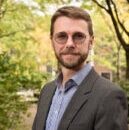
Benjamin B. Lockwood, PhD
Assistant Professor of Business Economics and Public PolicyRESEARCH INTERESTS & WORDS OF WISDOM
https://bepp.wharton.upenn.edu/profile/benlo/
Research Interests: public finance, optimal taxation, inequality, behavioral economics
Ben Lockwood is an assistant professor of Business Economics and Public Policy at the University of Pennsylvania’s Wharton School. His research specializes in public economics, with a focus on issues of optimal taxation, inequality, and behavioral economics. He has studied the use of taxes both for redistribution and as an instrument to change behavior. Recent work explores the use of taxes to discourage harmful or unhealthy behavior, to encourage talented workers to choose socially beneficial professions, and to encourage and support work while counteracting behavioral biases.
Professor Lockwood did his graduate work at Harvard University. His research has been published in leading journals including the Quarterly Journal of Economics, the Journal of Political Economy, the Journal of Public Economics, and the Journal of Economic Perspectives.
1. Where did you go to undergraduate school and what was your major?
I went to Amherst College, where I majored in philosophy and economics. I wrote my thesis in philosophy.
2. What inspired you to get a PhD?
I enjoyed writing my thesis in college, and studying the intersection of economics and distributive justice. I also came to believe that our understanding of economics was going to evolve a great deal during my lifetime, and I wanted to have a front-row seat.
3. What do you enjoy most about research?
I love the freedom that comes with academic research. You have the flexibility to study ideas that you find interesting, rather than having it dictated by someone else.
4. Why do you think academia is a good career?
I really enjoy the variety in my job. For part of the year, I am doing research, which feels like being self-employed. You choose what to work on, and which coauthors to collaborate with, and you manage your own time. Then for the other portion of the year, I am teaching large classes of MBA students, so I have a full schedule of classes with high-intensity students. I love that cadence.
5. When you are reviewing doctoral applications of students, what are you looking for beyond their academic record?
I’m interested in understanding whether an applicant has enough experience doing research to know whether they’ll enjoy pursuing a career in research. Conducting research is a different activity than taking and excelling in college courses, and in fact some of the best and most creative researchers were not the students who got the highest grades. But relatedly, sometimes students who were top performers in class do not end up loving research. That’s one reason I often recommend students do a thesis, work as a research assistant, or undertake other activities that provide a sense of the research process before applying to graduate schools.
REAL ESTATE
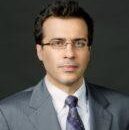
Fernando Ferreira, PhD
C.F. Koo Professor, Professor of Real Estate, Professor of Business Economics and Public PolicyRESEARCH INTERESTS & WORDS OF WISDOM
https://real-estate.wharton.upenn.edu/profile/fferreir/
Research Interests: public economics, real estate, urban economics
1. Where did you go to undergraduate school and what was your major?
University of Maringa, Brazil. Major: Economics
2. What inspired you to get a PhD?
Improve my skills; undergraduate degree was not enough to help me make a difference for society.
3. When you are reviewing doctoral applications of students, what are you looking for beyond their academic record?
Almost 100% academic record.
4. What is your philosophy about advising doctoral students?
Work 25 hours a day, 8 days per week, and 35 days per month.
5. What is your advice to doctoral candidates as they begin their job searches?
Don’t close any doors. You never know what job will be the best match for you until you actually “try” some of those positions.
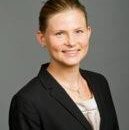
Jessie Handbury, PhD
Assistant Professor of Real EstateRESEARCH INTERESTS & WORDS OF WISDOM
https://real-estate.wharton.upenn.edu/profile/handbury/
Research Interests: international trade, urban economics, industrial organization Education
Ph.D. in Economics: Columbia University, 2013
B.A. in Economics-Mathematics: Columbia University, 2005
Academic Positions Held:
Assistant Professor, The Wharton School: 2012-present
NBER Faculty Research Fellow, International Trade and Investment (ITI), 2014- Penn IUR Faculty Fellow, 2014-
1. Where did you go to undergraduate school and what was your major?
Columbia College, Econ-Math
2. What inspired you to get a PhD?
Reflecting on how much I enjoyed working on my senior thesis while in a less creative position at a policy institution post-graduation.
3. What is the most important (or an important lesson) you learned from a mentor(s)?
To make the most of the rare opportunity that you get to conduct self-directed research as a day-job, by going after questions that truly excite you.
4. What do you know now that you wished you knew when you were pursuing your doctoral degree?
That time will only get scarcer.
5. What is your advice to doctoral candidates as they begin their job searches?
Look broadly – it’s your chance to introduce yourself and your work to a broad community
ETHICS & LEGAL STUDIES
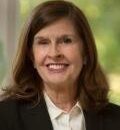
Diana Robertson, PhD
Samuel A. Blank Professor in Legal Studies, Professor of Legal Studies & Business Ethics; Vice Dean and Director, Wharton Undergraduate DivisionRESEARCH INTERESTS & WORDS OF WISDOM
https://lgst.wharton.upenn.edu/profile/robertsd/#contact
Research Interests: business ethics, corporate social responsibility, neuroscience and ethics
Diana’s research centers on business ethics and corporate social responsibility. At present she is conducting research using neuroimaging technology to identify neural activations in the brain associated with sensitivity to moral issues. Diana’s work has been published in Management Science, Journal of Marketing Research, Organization Science, Human Relations, The Journal of International Business Studies, Sloan Management Review, Journal of Business Ethics, Business Ethics Quarterly, Journal of Marketing, and Neuropsychologia.
Diana Received the Albert E. Levy Scientific Research Award at Emory University and has been a finalist for the Journal of Marketing Harold H. Maynard Award. Diana has received Excellence in Teaching Awards at Wharton and Emory University.
1. Where did you go to undergraduate school and what was your major?
Northwestern University, comparative literature
2. What inspired you to get a PhD?
I loved the intellectual challenges of college courses and wanted to continue to learn. I saw an opportunity never to leave the university setting and I seized it.
3. What is the most important (or an important lesson) you learned from a mentor(s)?
I learned not to compare myself to others and their achievements and instead to use my own internal yardstick to measure how I am doing. This is not always easy, but I think it is important.
4. What is an important lesson you learned from your students?
I hold my students in high regard and value them for who they are. I have learned to respect their individual differences.
5. What do you know now that you wished you knew when you were pursuing your doctoral degree?
At the time it seemed like it took forever to get the degree, and only now have I learned the value of being patient with myself and my progress.
6. What do you enjoy most about research?
I enjoy the autonomy of pursuing research questions that interest me and the fact that there are always new questions to be asked. My overall research asks why people behave ethically or unethically, and, of course, there are endless ways to pursue this question.
7. Why do you think academia is a good career?
For anyone considering becoming an entrepreneur, academia is a perfect fit. You build your own identity and pursue your own teaching and research interests. It is also a career in which you can pursue different interests at different points in time. I am never bored!
8. When you are reviewing doctoral applications of students, what are you looking for beyond their academic record?
I look for an understanding of what it means to do research and a passion for research. Of course, this can be hard to detect from an application, but I also read applicants’ writing samples and that gives a more complete picture.
9. What is your philosophy about advising doctoral students?
Encourage and support them as much as possible.
10. What is your advice to doctoral candidates as they begin their job searches?
As in any job, it is important to look at your fit with a school. Will you be able to do the type of research that you want to do? Also, I advise students to pursue every possible opportunity to present their work and meet people at other schools. I tell them that even if you think that you will not want to be at a particular school, you may surprise yourself once you visit the school.
FINANCE
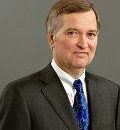
Michael Gibbons, PhD
I.W. Burnham II Professor of Investment BankingRESEARCH INTERESTS & WORDS OF WISDOM
https://fnce.wharton.upenn.edu/profile/927/
Research Interests: asset pricing, econometrics, portfolio theory Education
PhD, University of Chicago, 1980; MS, University of Chicago, 1979; BS, Butler University, 1975
Recent Consulting:
Consulting ranges from expert testimony (involving valuation of assets) to issues which arise in professional investment management
Career and Recent Professional Awards; Teaching Awards:
Batterymarch Fellow, 1983-84; Graduate Division Excellence in Teaching Award, 1996, 2001
Academic Positions Held:
Wharton: 1989-present (Deputy Dean, 2007-present; Chairperson, Finance Department, 1994-2006; named I.W. Burnham II Professor of Investment Banking, 1989). Previous appointments: Stanford University; University of Chicago. Visiting appointment: University of Chicago
1. Where did you go to undergraduate school and what was your major?
Butler University in Indianapolis, Economics.
2. What inspired you to get a PhD?
I was attracted to teaching. At that point, I didn’t know about research.
3. What is the most important (or an important lesson) you learned from a mentor(s)?
They were incredibly hard-working. The lights in their office would be on when I got to campus and they were on when I went home.
4. When you are reviewing doctoral applications of students, what are you looking for beyond their academic record?
There are many well-qualified applicants, but that is a necessary condition and is not sufficient for admission. The challenge in selecting students is being able to see who is creative and receptive to new ideas. It’s hard to explain, but you know it when you see it.
5. What is your philosophy about advising doctoral students?
Maybe the most important thing to impart to them is understanding the process in research. I was religious about writing down my research ideas – most of them were bad. But, it helped me keep track of ideas — what was good, what was bad/why it was bad. Eventually, if you keep churning out ideas, you’ll hit pay dirt.
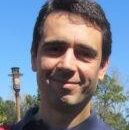
Joao F. Gomes, PhD
Howard Butcher III Professor of Finance; Professor of Economics; Senior Vice Dean of Research, Centers, and Academic Initiatives; Chairperson, Finance DepartmentRESEARCH INTERESTS & WORDS OF WISDOM
https://fnce.wharton.upenn.edu/profile/gomesj/
Research Interests: macroeconomics, financial markets, dynamic quantitative macro- finance models, corporate investment and leverage
Joao F. Gomes is the Howard Butcher III, Professor of Finance at the Wharton School of the University of Pennsylvania. Expert on the linkages between corporate policies, financial markets and the macroeconomy.
Professor Gomes’s research was published in the top academic journals in both Economics and Finance and covers: (i) the role of financial frictions on corporate investment, (ii) the impact of monetary policy on corporate investment and financing decisions of firms; (iii) the impact of corporate leverage and investment decisions on asset prices and the cost of capital; and (iv) the fundamental sources of performance variation across asset classes. The work won multiple awards including the Smith Breeden Prize for Best Asset Pricing Paper published in the Journal of Finance, the Marshall Blume First Prize in Financial Research, the Award for Best Investments Paper presented at the Western Finance Association meetings, the Jacobs Levy Outstanding Paper Prize, and the Crowell Memorial Prize.
Professor Gomes first joined the Wharton School in 1997. Was a Visiting Professor of Finance at the London Business School between 2009 and 2011. In addition, Professor Gomes visited several international universities and research centers, including Goethe University in Germany, the University of British Columbia in Canada, the New University of Lisbon in Portugal, and the US Federal Reserve System. Earlier in his career he served as an economic advisor in the Ministry of Industry of Portugal.
1. Where did you go to undergraduate school and what was your major?
I have a UG degree from Universidade Nova in Lisbon, Portugal. My major was economics.
2. What inspired you to get a PhD?
I enjoyed learning, especially about economics and liked the prospect academic life in pursuit of knowledge.
3. What is the most important (or an important lesson) you learned from a mentor(s)?
You can be a scientist or an advocate but never both.
4. What is an important lesson you learned from your students?
Everyone is different. The learn and process information differently but also respond to different stimuli.
5. What do you know now that you wished you knew when you were pursuing your doctoral degree?
A lot of things. I certainly don’t think I ever understood what it takes to be successful in the program or in academia until near the end – if at all. I struggled adjusting to both academia and life in the US all at the same time.
6. What do you enjoy most about research?
I mostly enjoyed the scientific freedom. I also really liked making friends all over the world with who I am excited to work with, even casually. There’s no question however that pure economics research has been corrupted by political bias in recent years and that has made it less fun.
7. Why do you think academia is a good career?
Mentally it is a very demanding career. It can take a toll. But it is great to have new students, new colleagues and new ideas to study and discuss every year. It keeps you young – but also challenged.
8. When you are reviewing doctoral applications of students, what are you looking for beyond their academic record?
Are they mentally strong. In research, success often requires many previous failures first. Most of our applicants are used to getting As their whole life. In research you can do everything right, study the problem, get data, do great analysis and still find nothing.
9. What is your philosophy about advising doctoral students?
Like many other things in my academic life, my thinking on this has evolved over time.
Generally, I first try to assess their strengths, weaknesses and what subjects they really like. I usually give very targeted tactical advice on their first papers to let them express themselves and better assess what they can/like to do. I think students do best when they work on something they love using tools they (can) master.
The most important thing I can do is then teach them how to ask good questions and direct them to those.
Much of an advisors time will still be spent on nurturing, regular feedback on papers and presentations and general mentoring. But the decisions made during the couple of years or so are very important.
10. What is your advice to doctoral candidates as they begin their job searches?
Get out of your comfort zone. Trust your advisor but always remember (s)he is the only person in the world that is definitely not going to hire you now. You must sell yourself to the rest of the world and you need to be get other views and connect with other people. Talk to anyone that will listen to you and your work, even outside academia. Listen very carefully for clues about how effectively are you getting your message across and try to get better at it.
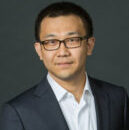
Winston Wei Dou, PhD
Assistant Professor of FinanceRESEARCH INTERESTS & WORDS OF WISDOM
https://fnce.wharton.upenn.edu/profile/wdou/
Research Interests: finance, macroeconomics, econometrics, economic uncertainty
Winston (Wei) Dou’s research focus lies at the intersection of finance, macroeconomics, and econometrics, in particular the impact of economic uncertainty, the role of market imperfection and incompleteness, the interactions of international asset prices and capital flows and their roles in understanding global imbalances, and new econometric methods for analyzing structural models. His articles have appeared in the Journal of Finance, the Annals of Statistics, and Journal of American Statistics Association. His research has received multiple academic awards, and he also received teaching excellence award at the Wharton School.
One of his recent research projects quantitatively and empirically investigates how heightened economic uncertainty affects asset prices and investment. Intuitively speaking, economic uncertainty is the blurriness or randomness of firm-specific economic prospects. Interestingly, he finds that, in the model as in the data, uncertainty is not always fearfully evil as the economy has experienced around the late 2000s financial crisis; in fact, it can sometimes be welcomed and embraced by investors.
He joined Wharton in 2016 as an assistant professor of finance. Previously, he studied financial economics at MIT. He also received another doctoral degree in statistics from Yale University in 2010. He obtained a B.S. in mathematics and another B.S. in economics from Peking University in China.
1. Where did you go to undergraduate school and what was your major?
I completed my undergraduate studies at Peking University. My primary major was Mathematics, and my double major was Economics.
2. What inspired you to get a PhD?
It was my passion for research and ambition for advancing knowledge in the field of Financial Economics and Econometrics.
3. What is the most important (or an important lesson) you learned from a mentor(s)?
First, we should always keep our minds open to suggestions, sometimes even criticisms, and we also need to be ready to learn from others, including our students. Second, we need to be entrepreneurial and independent. It helps us remain being creative and capable of putting together various necessary resources for achieving the research goals. Third, we need to be down to the earth and 100% precise about what we write in our research articles. Last but not least, I learned the importance of resilience and determination in the face of adversity. It’s inevitable to encounter setbacks or challenges in the process of research, but we should not give up or be defeated. We need to be persistent and patient. That’s why it is called re-search rather than just search.
5. What do you know now that you wished you knew when you were pursuing your doctoral degree?
It is very important to make yourself sufficiently exposed to frontier research topics and new ideas through various forms of academic gatherings such as seminars, workshops, and conferences. Attending such events allows you to stay up-to-date with the latest research trends, gain insights into new and emerging fields, and expand your knowledge and understanding of your own field. Additionally, interacting with other researchers, especially those who are more established and experienced, provides a valuable opportunity to learn from their perspectives and experiences, and to gain insight into how they approach research questions.
6. What do you enjoy most about research?
I find our work intellectually fulfilling because they have the opportunity to explore new ideas, concepts, and phenomena, and contribute to the advancement of knowledge in their field. This is very important. I also enjoy a high degree of intellectual freedom and flexibility in our work, allowing us to pursue our own interests and passions. Additionally, we often work in collaborative environments, allowing us to interact with and learn from other experts in their field.
8. When you are reviewing doctoral applications of students, what are you looking for beyond their academic record?
Communication skills, technical and computational skills, and leadership.
HEALTH CARE MANAGEMENT & ECONOMICS
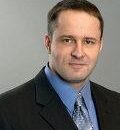
Guy David, PhD
Alan B. Miller Professor; Professor of Health Care Management; Professor of Medical Ethics and Health Policy, Perelman School of Medicine; Chair, Health Care Management DepartmentRESEARCH INTERESTS & WORDS OF WISDOM
https://hcmg.wharton.upenn.edu/profile/gdavid2/
Research Interests: applied microeconomics, emergency medical services, health economics, industrial organization, nonprofit organizations, post-acute care, primary care, regulation
1. Where did you go to undergraduate school and what was your major?
Tel Aviv University – majored in Economics and Labor Studies
2. What inspired you to get a PhD?
Worked in a research institute and needed a stronger toolbox to gain independence as a researcher
3. What is the most important (or an important lesson) you learned from a mentor(s)?
They helped me overcome barriers that seemed insurmountable at times – sometimes by giving me a helpful advice and sometimes simply by believing in me. Mentors can instill confidence or deplete it, and what I took from that is the realization that I can empower my students to go and do great things simply by believing in them.
4. What is an important lesson you learned from your students?
Our students are studying many different cutting edge topics from many of my colleagues and by interacting with students I get a glance into how my colleagues think about a problem that the student is interested in solving. Indirectly, students transmit an enormous amount of valuable information and generate cross fertilization amount faculty members. So, I constantly learn from my students.
5. What do you know now that you wished you knew when you were pursuing your doctoral degree?
Being somewhat naïve can be a virtue for PhD students, knowing how long this road is may be discouraging.
6. What do you enjoy most about research?
The process of discovery and the ability to generate new knowledge. I also enjoy taking that knowledge and turn it into teaching materials.
7. Why do you think academia is a good career?
I was never very productive in middle management positions, being an academic allows me the freedom to reinvent myself and follow my passion for research. I also love the fact that speed is not a matric for success in academia – it is about being precise and relentless in the pursue of mechanisms and phenomena that is rewarded.
8. When you are reviewing doctoral applications of students, what are you looking for beyond their academic record?
I seek applicants with a passion for research, for solving complex problems, an appreciation for knowledge and evidence as a basis for better decision making, and a belief that systematic thinking can help understand how our world function.
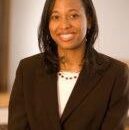
Ingrid M. Nembhard, PhD
Fishman Family President’s Distinguished; Associate Professor Associate Professor of Health Care ManagementRESEARCH INTERESTS & WORDS OF WISDOM
https://hcmg.wharton.upenn.edu/profile/ingridn/
Research Interests: organizational behavior, organizational learning, teamwork and coordination, implementation, quality improvement
Professor Nembhard’s research focuses on how characteristics of health care organizations, their leaders, and staff contribute to their ability to implement new practices, engage in continuous organizational learning, and ultimately improve quality of care. She uses qualitative and quantitative research methods to examine health care delivery from provider and patient perspectives, and to evaluate organizational performance. She is currently studying the implementation of care coordination in primary care groups, including the effects on patients and clinicians, organizational learning from different types of experiences, the use of patient feedback via narratives to drive quality improvement by clinicians and administrators, and the contributors to high performance in challenging work environments. She maintains an interest in studying how health care organizations most effectively learn and implement new clinical and operational practices, teamwork within and across organizations, and strategies for improving the patient experience.
1. Where did you go to undergraduate school and what was your major?
Yale University ; Ethics, Politics and Economics & Psychology My Masters and PhD are from Harvard
2. What inspired you to get a PhD?
The idea of knowing something well enough to make a difference in that space. As a health care management professor (researcher and teacher), I conduct research that has the potential to improve the quality of care that patients receive. I build the knowledge base that helps health care leaders and professionals deliver better patient care. And, I teach the future leaders of health care organizations so there are two routes for impact.
3. What is the most important (or an important lesson) you learned from a mentor(s)?
Based on observation, success takes commitment. You have to put in the hours.
4. When you are reviewing doctoral applications of students, what are you looking for beyond their academic record?
Inquisitiveness. Does the person wonder why things are the way they are? Does the person have questions? I know those are not necessarily the questions that will become his or her research agenda but every project begins with a question so it’s important to see that the person is curious. Curiosity leads to great questions.
5. What is your advice to doctoral candidates as they begin their job searches?
It all works out. You will land where you are supposed to land. Write the best paper you can, apply, and then
don’t worry. Fit happens. You will find the place that is right for you, and they will know you are right for them.
MANAGEMENT
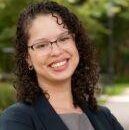
Rachel Arnett, PhD
Assistant Professor of ManagementRESEARCH INTERESTS & WORDS OF WISDOM
https://mgmt.wharton.upenn.edu/profile/rarnett/
Research Interests: diversity & inclusion; workplace relationships; identity; race; status; gender; social class
Rachel Arnett is an Assistant Professor of Management at the Wharton School of the University of Pennsylvania. Her research investigates the important role that identities and interpersonal interactions play in cultivating workplace inclusion and enabling professional advancement. In her primary stream of research, she examines when, why, and how individuals express cultural identities or conceal relatively high status identities when interacting with people who differ from themselves, and the influence that these decisions have on employees’ inclusive behaviors towards one another and willingness to promote one another’s professional advancement. While primarily an experimentalist, her research also employs field and qualitative methods. Through her work, she hopes to shed light upon how people from different backgrounds can work together effectively and drive organizational success. Rachel completed her doctoral training in Harvard University’s Organizational Behavior program, an interdisciplinary program between
Harvard Business School and Harvard’s Social Psychology department. Before Harvard, she was a Research Assistant in New York University’s Social Psychology department and a Senior Brand Strategist in the advertising industry. She received her Bachelor of Arts from the University of Pennsylvania.
1. Where did you go to undergraduate school and what was your major?
UPenn. I majored in Economics and minored in Consumer Psychology. However, in my case, I don’t think my college experience or majors/minors had much to do with my doctoral path, as I didn’t know much about the doctoral path in undergrad and was not preparing for it. My doctoral path was more so influenced by my experiences after undergrad (see below).
2. What inspired you to get a PhD?
Since I was a kid, I had been interested in psychology, as I had always been fascinating in understanding why people do the things that they do. After taking and loving an AP Psychology course in high school, I decided to be a psychology major in college. I ultimately decided to go to Penn because I also had an interest in business, but I got swept up in the idea that I needed to work at companies and pursue a field like marketing or branding. This led me to change my major to Economics and my minor to Consumer Psychology (a cross between marketing and psychology) in order to prepare for a job in the “real world” like many of my peers. I landed a job in brand strategy after undergrad, but it only took a year for me to realize that, while the job was interesting and I really loved my coworkers, it did not fit my inner passion to understand people and why they do the things they do. I was much more fascinated by how my coworkers interacted with one another than I was with how to devise the optimal brand strategy. I still didn’t really know much about what it meant to get a PhD, but I at least knew by then that social psychology was a bit more “up my alley” so I sent emails to social psychologists at NYU and Columbia asking if them if I could get a paid Research Assistant position. I got no responses. Six months later, I sent several emails again, this time asking if I could work for free. I got a response from someone at NYU and I still remember my first meeting with a graduate student there.
Everything she was doing sounded fascinating to me. Talking to her about different ideas was exhilarating and my heart was literally racing by the end of the conversation. I knew then – this is what I want to do with my life. I didn’t care what I needed to do to be able to do it, I just knew I had to do it. A PhD is what it takes? Sure, I’ll get a PhD then. I spent a couple of years volunteering at NYU in the evenings (after my day job), just to confirm that this was really what I wanted to do and also gain the necessary experience to apply to graduate school. During that time, I talked to different people in the department about my interests and they pointed out something I hadn’t realized. Most of my interests had to do with how people interact in the workplace.
They suggested that I apply to a couple of Organizational Behavior programs, and specifically pointed out that Harvard had an interdisciplinary Organizational Behavior program, which would allow me to take classes in the psychology department (in addition to the business school). I ended up applying to and entering that doctoral program, and they were right – it was a great fit for me. I had finally found a way to wed my long-standing interests in both psychology and business.
3. What is the most important (or an important lesson) you learned from a mentor(s)?
I am constantly observing the world around me and often have ideas about why people do the things they do. I’m especially interested in how people’s thoughts and behaviors are influenced by differences in race, gender, class, and other social identities, and this topic really matters in the world these days. When I develop a new idea, being able to talk about and write about it is no doubt the most exciting part of the research process for me. Being able to test these hypotheses, and potentially fix issues in the world as a result, feels like what I am meant to do with my life.
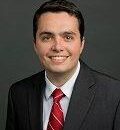
Exequiel Hernandez, PhD
Max and Bernice Garchik Family Presidential Associate ProfessorRESEARCH INTERESTS & WORDS OF WISDOM
https://mgmt.wharton.upenn.edu/profile/exequiel/
Research Interests: global networks, internationalization, immigration, innovation, knowledge management, mergers and acquisitions
Professor Exequiel Hernandez studies global networks and the internationalization of firms. He is especially interested in how firms grow through the establishment of subsidiaries in foreign countries and through the formation of alliances and other types of network ties with foreign partners. Zeke’s research deals with two related challenges firms must manage as they grow in this manner: creating and transferring knowledge across units scattered throughout multiple parts of the world and dealing with competitive threats from rivals in multiple locations. He has published in top tier journals such as Administrative Science Quarterly, Management Science, Organization Science, Strategic Management Journal, and Academy of Management Journal.
1. Where did you go to undergraduate school and what was your major?
Brigham Young University (BYU), Accounting
2. What inspired you to get a PhD?
It started out because I loved teaching. I never knew much about research until I asked one of my business professors what it took to become a college professor. He told me that liking teaching is great, but that one should also learn to like research. So I took a few RA jobs and fell in love with research pretty quickly. Then I went through the process of applying for PhD programs.
3. What is the most important (or an important lesson) you learned from a mentor(s)?
One of my mentors told me that to succeed in this profession you need two things: a thick skin and the willingness to persevere. I’ve found that to be true. In the process of doing research, you get mostly negative feedback. It’s intended to help improve your work, and it usually does. But you have to learn to see it as intended to make you better. If you don’t develop the thick skin, you take it personally and never try again. I’ve learned that the most successful academics are also the ones that take the most risks and thus fail a lot—but they also have great success for the very same reason.
4. What is an important lesson you learned from your students?
To make research relevant. At the end of the day, in business academia we need to say something useful to managers. If I can’t ultimately apply what I research to my students, then I need to rethink about the relevance of what I’m studying.
5. What do you know now that you wished you knew when you were pursuing your doctoral degree?
To maximize learning, not grades. And to get involved with data analysis as soon as possible, right from the outset of the doctoral program or even before.
6. What do you enjoy most about research?
The thrill of feeling that I created something original. It’s a really creative process, and that’s fun.
7. Why do you think academia is a good career?
See my answer above. Plus, the flexibility is amazing. You have to work hard, but you can work whenever and wherever you like. No asking for time off or punching in a time card. Flexibility also applies to what you do—you can decide what to research, what to teach, etc. For some, that’s scary because the career doesn’t impose structure into your life. But if you learn how to impose it by yourself, the freedom of doing what you want is amazing.
8. When you are reviewing doctoral applications of students, what are you looking for beyond their academic record?
Most applicants have intelligence. That’s not the differentiator in long-term academic success. I look for indications of grit, hard work, and originality.
9. What is your philosophy about advising doctoral students?
I like to let students get their hands dirty—get them involved with data and writing immediately. Research is very much a learning by doing thing.
10. What is your advice to doctoral candidates as they begin their job searches?
Be original. Pursue big ideas because schools are looking for people that will make an impact with ideas—not for a “technician” that is competent but lacks creativity.
And make friends. You can only take one job, but the relationships you form as you go on the job market will pay dividends in unexpected ways—whether that’s future jobs, coauthorship opportunities, etc.
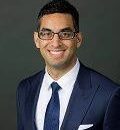
Samir Nurmohamed, PhD
Assistant Professor of ManagementRESEARCH INTERESTS & WORDS OF WISDOM
https://mgmt.wharton.upenn.edu/profile/nurmo/
Research Interests: adversity, behavioral ethics, motivation
Professor Samir Nurmohamed’s research aims to understand the processes and contextual conditions under which individuals can endure, develop, and succeed when they are the targets of adversity from others. Existing research shows that others’ low expectations are detrimental to the performance of employees and groups within organizations, but Professor Nurmohamed is interested in understanding how individuals can derive motivation and develop when others question their capacity to succeed or treat them poorly.
Professor Nurmohamed teaches a course on Power and Politics in Organizations in the undergraduate, MBA, and executive education programs and the MBA core course on the Foundations of Teamwork and Leadership (MGMT 610).
He completed his Ph.D. in Management and Organizations at the University of Michigan, and holds his B.A. in Economics and Philosophy from The University of Western Ontario.
1. Where did you go to undergraduate school and what was your major?
My undergraduate degree was at Huron University College at the University of Western Ontario. I received a BA with an Honors Specialization in Economics and a Major in Philosophy.
2. What inspired you to get a PhD?
I had some really awesome professors across a number of disciplines (e.g., economics, philosophy, statistics, and political science) who taught very well and clearly were passionate about their work. Once I learned more about their career path and what piqued their interests, I realized that this was something worth exploring.
3. What is the most important (or an important lesson) you learned from a mentor(s)?
Block out time for your leisure in a doctoral program. You will be very busy, so schedule around your leisure rather than your work (otherwise work will probably overtake your leisure).
4. What do you know now that you wished you knew when you were pursuing your doctoral degree?
It is important to think more about who will mentor you at the university you will attend, rather than just the prestige of universities. Don’t assume that a good ranking for a business school means that they train doctoral students well.
5. What do you enjoy most about research?
The opportunity to ask a question that matters in the world, and then link it to what organizations are doing.
6. What is your philosophy about advising doctoral students?
I think it’s important for doctoral students to have a hybrid model—they should be developing their own ideas early and pursuing them with faculty members, as well as serving as more of a traditional research assistant on a project that is already underway. I always tell doctoral students to think of developing a portfolio of research projects. Although I have very little knowledge of finance, what I do know is that you want to sometimes spread the risk and also how the length of your investments (short-term versus long-term). The same applies for research projects.
MARKETING
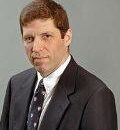
Eric Bradlow, PhD
The K.P. Chao Professor; Professor of Marketing; Vice Dean of Analytics at Wharton; Chairperson, Wharton Marketing Department; Professor of Economics; Professor of Education; Professor of StatisticsRESEARCH INTERESTS & WORDS OF WISDOM
https://marketing.wharton.upenn.edu/profile/185/
Research Interests: Bayesian computation, latent variable models, marketing research methods, missing data problems, analytics, psychometrics
Professor Eric T. Bradlow is the K.P. Chao Professor, Professor of Marketing, Statistics and Education, Vice- Dean and Director of Wharton Doctoral Programs, and Co-Director of the Wharton Customer Analytics Initiative. An applied statistician, Professor Bradlow uses high-powered statistical models to solve problems on everything from Internet search engines to product assortment issues. Specifically, his research interests include Bayesian modeling, statistical computing, and developing new methodology for unique data structures with application to business problems.
A prolific scholar, Professor Bradlow’s research has been published in top-tier academic journals such as the Journal of the American Statistical Association, Psychometrika, Statistica Sinica, Chance, Marketing Science, Management Science, and Journal of Marketing Research. He also serves as Associate Editor for the Journal of the American Statistical Association and the Journal of Marketing Research, and is on the Editorial Boards of Marketing Letters, Marketing Science, Journal of Marketing Research, Quantitative Marketing and Economics, and the Quarterly Journal of Electronic Commerce.
Professor Bradlow has won numerous teaching awards at Wharton, including the MBA Core Curriculum teaching award, the Miller-Sherrerd MBA Core Teaching award and the Excellence in Teaching Award. His teaching interests include courses in Statistics, Marketing Research, Marketing Management and PhD Data Analysis, as well as any material related to customer analytics.
Professor Bradlow earned his PhD and Master’s degrees in Mathematical Statistics from Harvard University and his BS in Economics from the University of Pennsylvania.
Professor Bradlow was the faculty developer of the Wharton IDDEAS program.
1. Where did you go to undergraduate school and what was your major?
I was a Wharton UG and my undergraduate majors were Statistics and Economics.
2. What inspired you to get a PhD?
I heard a statistics professor give a talk when I was a freshman about the application of statistics to sports and I thought “that looks really fun”. So, I took a bunch of doctoral classes and decided that it was something I really enjoyed.
3. What is the most important (or an important lesson) you learned from a mentor(s)?
You should treat challenges as research opportunities. The other thing I learned was that skills are multi- dimensional. So, even though someone might have better math training, I may have creativity skills that they don’t have.
4. What is an important lesson you learned from your students?
If you mean doctoral students, what I have learned is that you have to let the student “steer the ship”. It is not about how you would do the problem, but rather you have to let the student head in a direction that is interesting to them.
5. What do you know now that you wished you knew when you were pursuing your doctoral degree?
Take as many fundamental classes to get rigorously trained. Better training, whether in math, statistics, economics, psychology, sociology, etc… will always pay off in the long run.
6. What do you enjoy most about research?
The creative part about solving problems is very fun. However, that is not enough. You have to be diligent and the publication process is very labor intensive. So, stubbornness and a dogged nature to get papers “to the finish line” is a very important skill to have.
7. Why do you think academia is a good career?
You have the freedom to work on the kinds of problems that you want. I have worked in industry twice, and rarely do you get free time to just “sit and think”. Secondly, it is very rewarding to train students and see them become great scholars.
8. When you are reviewing doctoral applications of students, what are you looking for beyond their academic record?
Well, their academic record is very important; but, most importantly their demonstrated interest and experience with doing research. So, the best way to get into graduate school, besides great grades in appropriate test scores and good test scores is to have experience with academic research.
9. What is your philosophy about advising doctoral students?
Have high standards, be fair, but note that you are nurturing someone who is in a “formative” state. So, you have to play good cop, bad cop, friend, psychologist, but most important you have to be their #1 fan.
10. What is your advice to doctoral candidates as they begin their job searches?
Don’t let anyone else define success or failure for you. Not everyone wants to or can be at a top tier research institution. The second thing I would say is have papers papers papers! We get success from our writings. This is the key.
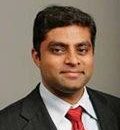
Raghuram Iyengar, PhD
Miers-Busch, W’1885 Professor; Professor of Marketing; Faculty Director - Wharton Customer AnalyticsRESEARCH INTERESTS & WORDS OF WISDOM
https://marketing.wharton.upenn.edu/profile/riyengar/
Research Interests: pricing, social influence
Professor Raghu Iyengar’s research interests fall in two domains: pricing and social influence. In the area of pricing, his work focuses on the impact of multi-part pricing schemes on consumer response. The success of such pricing mechanisms to extract consumer surplus depends on how consumers respond to different components. Methodologically, Iyengar has developed novel consumer demand models that capture the effect of multi-part pricing tariffs in a theoretically meaningful way and include contextual factors such as consumers’ uncertainty about usage. Substantively, he has shown that accounting for consumers’ uncertainty is important for firm profits especially when multi-part prices are employed. In the area of social networks, Iyengar has done work that has investigated how and why such influence may be at work. Across several studies, Iyengar has identified the underlying mechanism(s) such as awareness, social learning or social normative pressure that may be at work in different contexts. Understanding the mechanism(s) is important not only theoretically but also managerially, because which customers to target and which ties to activate using what message depends on what mechanism is at work.
Professor Iyengar’s other current research projects focus on the impact of referral coupons on consumer behavior and how changes in loyalty program requirements may change future customer behavior. His research has been published or forthcoming in Journal of Marketing Research, Marketing Science, Psychometrika, Quantitative and Marketing Economics and Experimental Economics. He serves on the Editorial Boards of Journal of Marketing Research, Marketing Science and the International Journal of Research in Marketing.
Professor Iyengar’s teaching interests are in the area of Marketing Research and Analytics. He earned his PhD and MPhil from Columbia University and his B. Tech. from IIT Kanpur, India.
1. Where did you go to undergraduate school and what was your major?
Indian Institute of Technology Kanpur, undergraduate major was mechanical engineering.
2. What inspired you to get a PhD?
When I thought about business problems I was excited about, it went beyond the application per se but more about understanding the fundamental underlying mechanisms at work. A Phd seemed like an ideal stepping stone for future such pursuits.
3. What is the most important (or an important lesson) you learned from a mentor(s)?
It is important to generate good ideas but as important to close the projects. There are many ideas that I have had but, unfortunately, have lost the motivation along the way to complete the project. So, very important to start new projects but equally important to finish them.
4. What do you enjoy most about research?
The most exciting part for me is the initial uncertainty. While I have a broad sense of the path for publication for most projects, it is the Nuances that are important and interesting.
5. When you are reviewing doctoral applications of students, what are you looking for beyond their academic record?
The critical things I look for are motivation / signs of perseverance. This is hard to see in an academic record. So, I also look at prior research experience – this is a great signal to make sure that students know what they are getting into and that good research is hard work.
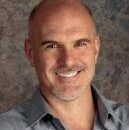
Michael Platt, PhD
James S. Riepe University Professor; Professor of Marketing, Psychology, and NeuroscienceRESEARCH INTERESTS & WORDS OF WISDOM
https://marketing.wharton.upenn.edu/profile/mplatt/
Research Interests: Innovative Thinking: Using Neuroscience to get Out-of-the-Box Ideas
Michael Platt has been selected as the sixteenth Penn Integrates Knowledge Professor, effective July 1, 2015. Platt, a neuroscientist whose work focuses on the brain’s decision-making processes, has appointments in the Department of Neuroscience in the Perelman School of Medicine, the Department of Psychology in the School of Arts and Sciences, and the Department of Marketing in the Wharton School. Platt has served as Professor of Neurobiology, Director of the Duke Institute for Brain Sciences and Director of the Center for Cognitive Neuroscience at Duke University. Organizations such as the National Foundation, the Klingenstein Foundation, the McDonnell Foundation and the Department of Defense have supported his research, and he has been recognized in the New York Times, the Washington post, the Wall Street Journal, National Public Radio, A`BC, BBC and PBS. Platt has also served as the President of the Society for Neuroeconomics.
1. Where did you go to undergraduate school and what was your major?
Yale. Anthropology.
2. What inspired you to get a PhD?
I was very inspired by my undergraduate mentor Alison Richard, who is now president of Cambridge University in England. I was also very inspired by doing field research in Mexico during the summer between Junior and Senior year.
3. What is the most important (or an important lesson) you learned from a mentor(s)?
Do what inspires you. If you don’t wake up thinking about your work in the shower in the morning you’re
probably not in the right job.
4. What is an important lesson you learned from your students?
A little freedom goes a long way.
5. What do you know now that you wished you knew when you were pursuing your doctoral degree?
I have been delighted by all the positive surprises. I lead a surprisingly great life that I didn’t really think would be possible as an academic.
6. What do you enjoy most about research?
I love being a creative explorer of the human condition.
7. Why do you think academia is a good career?
Intellectual freedom is a gift and I love teaching.
8. When you are reviewing doctoral applications of students, what are you looking for beyond their academic record?
Passion, creativity, social skills, the ability to write
9. What is your philosophy about advising doctoral students?
Inspire them and reward independence
10. What is your advice to doctoral candidates as they begin their job searches?
Learn to communicate by writing and speaking as much as possible
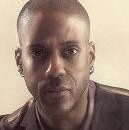
Americus Reed, PhD
The Whitney M. Young Jr. Professor; Professor of MarketingRESEARCH INTERESTS & WORDS OF WISDOM
https://marketing.wharton.upenn.edu/profile/204/
Research Interests: how social identity, social influence, values, attitudes and judgements interact in shaping purchase decisions and consumer behavior
Professor Americus Reed is the Marketing Department’s only “identity theorist,” focusing his research on the role consumers’ self-concepts play in guiding buying decisions. He examines how social identity, social influence, values, attitudes and judgments interact in shaping purchase decisions and consumer behavior, but from a social psychology point of view.
Most recently, Professor Reed studied brand identity by examining the triggers that lead consumers to identify with and become loyal to a product, brand or logo. Other recent research looked at judgments that are linked to a person’s identity are virtually immovable, or “sticky,” providing new information for marketing managers about product loyalty.
Professor Reed’s research has been published in top-tier academic journals including the Journal of Consumer Research, the Journal of Marketing Research and the Journal of Personality and Social Psychology. His teaching interests include courses in Consumer Behavior, Marketing Research, Marketing Management, Organizational Behavior and Social Psychology.
Professor Reed received his PhD from the University of Florida, and his MS and BA degrees from Georgia State University.
1. Where did you go to undergraduate school and what was your major?
Undergraduate BBA from Georgia State University—major in Organizational Behavior (GSU), MS from GSU in Organizational Behavior, MS from GSU in Market Research Methods, Ph.D. University of Florida Marketing/Consumer Psychology
2. What inspired you to get a PhD?
Role models and mentors who were my early Professors (Karl Aquino and Lois Mohr) who took the time to slow their careers down to tutor me in the ins and outs of doing research. At home it was my Mother and Father who always taught my sister and I that you cannot become “overeducated”
3. What is the most important (or an important lesson) you learned from a mentor(s)?
Do something that you love to do and you’ll never have to go to work. Do it with passion and let it come from within. It is an amazing job. Someone pays you to learn about stuff you are naturally curious about, and would probably be learning about on your own anyway.
4. What is an important lesson you learned from your students?
Perspective taking. I learned that my students “are not like me” and not to assume that the things I care about, they also care about. Rather, understand their perspective, what is going on in their lives and what they truly desire to get out engaging with me academically/educationally.
5. What do you know now that you wished you knew when you were pursuing your doctoral degree?
To enjoy the moment—as you progress through the ranks of academia, you become more and more busy. I miss those days when I could TRULY be a student. Wander over to the library and just spend countless hours reading and being in a scholarly environment.
6. What do you enjoy most about research?
It uses all aspects of your brain and it never ends. You try to answer a very specific question, and you start to shed light on that question, then you realize you’ve now got 5 new questions that you’d like to answer.
7. Why do you think academia is a good career?
PHENOMENAL career for those who don’t like/want “bosses” or traditional hours to “clock in” and who are
intellectually curious naturally. Phenomenal career for those who are independent and self-starters.
8. When you are reviewing doctoral applications of students, what are you looking for beyond their academic record?
Intellectual curiosity and drive. At the Ph.D. level, EVERYBODY is smart and can produce high GMAT scores. The difference between very successful academics and those who are not, is the creativity piece, the desire to OWN an area and be the undisputed “expert” in that area, and a smidgeon of compulsion in that they eat sleep and breathe knowledge creation through addressing and asking and answering a question via the scientific process. The successful academics have the WILL to keep going in the constant face of rejection in the review process.
9. What is your philosophy about advising doctoral students?
They are collaborators NOT glorified RAs.
10. What is your advice to doctoral candidates as they begin their job searches?
You have to OWN the room you are interviewing in, by showing that you KNOW your topic INSIDE and OUT. You have to demonstrate an ability to talk through your topic effortlessly, and that fluidity is “easy” if you have been tirelessly thinking about your topic for 3-5 years. Also, shoot for “quality” not “quantity” in your vita. I am much more impressed with richer research pieces, than 1 trick phenomena. I look for depth of thinking in terms of how the student has tackled the topic and the creativity that they have employed in studying their area. I also look for a resolve and work ethic that matches a high level of stick-to-it-iveness.
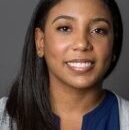
Wendy De La Rosa, PhD
Assistant Professor of MarketingRESEARCH INTERESTS & WORDS OF WISDOM
https://marketing.wharton.upenn.edu/profile/wendyde/#teaching
Research Interests: focuses on how to improve the lives of low and middle-income people.
1. Where did you go to undergraduate school and what was your major?
Wharton, Finance and Management
2. What inspired you to get a PhD?
I wanted to expand the world’s knowledge. I wanted to take back the narrative on low income people. I wanted to research the things that interested me.
3. What is the most important (or an important lesson) you learned from a mentor(s)?
Be kind. Your reputation matters.
4. What do you enjoy most about research?
Everything. I get to research what I love.
5. Why do you think academia is a good career?
There is no other career where you have as much autonomy over your schedule and priorities. It’s a blessing.
OPERATIONS, INFORMATION AND DECISIONS
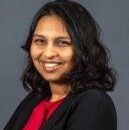
Hamsa Bastani, PhD
Assistant Professor of Operations, Information and DecisionsRESEARCH INTERESTS & WORDS OF WISDOM
https://oid.wharton.upenn.edu/profile/hamsab/
Research Interests: machine learning algorithms & applications to healthcare, revenue management, social good
Hamsa Bastani is an assistant professor in Operations Information and Decisions at the Wharton School, University of Pennsylvania. Her research focuses on developing novel machine learning algorithms for data- driven decision-making, with applications to healthcare operations, pricing, recommendation systems, and social good. Her work has been recognized by the George Nicholson, MSOM, Service Science, and Health Applications Society best student paper awards, the Pierskalla best paper award in healthcare operations, and the early-career People’s Choice award in sustainable operations. She previously completed her PhD at Stanford University, and was a Herman Goldstine postdoctoral fellow at IBM Research.
1. Where did you go to undergraduate school and what was your major?
I went to Harvard and majored in physics and mathematics.
2. What inspired you to get a PhD?
I loved doing research, and “thinking deeply about simple things.”
3. What do you know now that you wished you knew when you were pursuing your doctoral degree?
Focus and perseverance are important, but knowing when to give up is also important. It’s okay to drop a project after investing time and effort, if you realize you’re not passionate about the question you posed or if you’ve come too far away from what you originally wanted to
4. What is an important lesson you learned from your students?
You can work on anything you want!
5. What do you know now that you wished you knew when you were pursuing your doctoral degree?
I’m fairly hands-on in the first two years, but as they progress, I like to give them as much independence as they can handle.
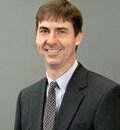
Lorin Hitt, PhD
Zhang Jindong Professor; Professor of Operations, Information and DecisionsRESEARCH INTERESTS & WORDS OF WISDOM
https://oid.wharton.upenn.edu/profile/lhitt/
Research Interests: applied econometrics, economics of electronic commerce, information systems and organization, information technology and productivity, intangible assets
1. Where did you go to undergraduate school and what was your major?
Undergraduate degree was from Brown (Electrical Engineering). Stayed an extra year and got by MS in Electrical Sciences.
2. What inspired you to get a PhD?
I really liked the intellectual part of consulting, but didn’t so much like the lifestyle. A business Ph.D. seemed like the closest thing that would give me more freedom to do what I was interested in and a bit more control over my life. I’ve also always liked the academic environment and teaching.
3. What is the most important (or an important lesson) you learned from a mentor(s)?
When doing research it is extremely important to ask a good question. Good questions don’t take any more time to work on than bad questions, but are more fun and are much more likely to have an interesting outcome. People who consistently ask good questions have vastly better academic careers on every dimension.
4. What is an important lesson you learned from your students?
Persistence solves almost any problem.
5. What do you know now that you wished you knew when you were pursuing your doctoral degree?
It’s a very small world in academia, especially when you become more specialized, so take every opportunity
you have to interact with the people in your field.
6. What do you enjoy most about research?
Personally, I like collecting and working with data. Trying to figure out what is really happening and then to convince yourself (and later others) that what you think you have found is actually true.
7. Why do you think academia is a good career?
It is good for people who like and can use the freedom to work on things you find interesting whether it is research or teaching or something else.
8. When you are reviewing doctoral applications of students, what are you looking for beyond their academic record?
Fit. Some type of connection either in method, interests or research questions with a faculty member in the department. It doesn’t hurt to make that easy to assess by listing names.
9. What is your philosophy about advising doctoral students?
Two critical items: 1) The most important and challenging stage for a doctoral student is transitioning from working on other peoples’ problems to finding your own. The sooner that happens the better off the student will be. 2) Learning to manage the process of being an academic is surprisingly hard to learn on your own, and unexpectedly important (e.g. how to give a job talk, how to respond to paper review, what should go in a personal statement, who to ask for letters…).
10. What is your advice to doctoral candidates as they begin their job searches?
Be flexible and apply anywhere you could conceivably envision yourself. It is really hard to gauge fit until you start talking seriously with people at your potential employers.
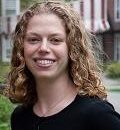
Katherine Milkman, PhD
James G. Dinan Endowed Professor; Professor of Operations, Information and DecisionsRESEARCH INTERESTS & WORDS OF WISDOM
https://oid.wharton.upenn.edu/profile/kmilkman/
Research Interests: experimental economics, behavioral economics, judgement and decision making
Katherine Milkman is an associate professor at The Wharton School at the University of Pennsylvania, she has a secondary appointment as an associate professor at the Perelman School of Medicine, and she is the co- director of Wharton People Analytics. Her research relies heavily on “big data” to document various ways in which individuals systematically deviate from making optimal choices. Her work has paid particular attention to the question of what factors produce self-control failures (e.g., undersaving for retirement, exercising too little, eating too much junk food) and how to reduce the incidence of such failures. (Watch Katherine give a 5- minute presentation about her research on motivating exercise.)
Katherine received her undergraduate degree from Princeton University (summa cum laude) in Operations Research and Financial Engineering and her Ph.D. from Harvard University’s joint program in Computer Science and Business.
1. Where did you go to undergraduate school and what was your major?
Princeton University – Major: Operations Research & Financial Engineering; Minor: American Studies
2. What inspired you to get a PhD?
Falling in love with the experience of writing a senior thesis in college (a statistical analysis of a decade of New Yorker fiction)
3. What do you know now that you wished you knew when you were pursuing your doctoral degree?
That the career of an academic gets more and more interesting at every stage.
4. What do you enjoy most about research?
That I get to spend all my time answering questions I desperately want answered AND I get to be the first person in the world to find out the answer to the questions I pose.
5. When you are reviewing doctoral applications of students, what are you looking for beyond their academic record?
Someone who has taken classes about statistics and computer science and will be ready to wrestle with data.
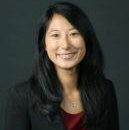
Alice Moon, PhD
Assistant Professor of Operations, Information and DecisionsRESEARCH INTERESTS & WORDS OF WISDOM
https://oid.wharton.upenn.edu/profile/lhitt/
Research Interests: judgment and decision making, consumer choice, consumer preference
Alice Moon is an Assistant Professor of Operations, Information, & Decisions at The Wharton School (University of Pennsylvania). Alice’s research focuses on topics in judgment and decision making. In particular, her work aims to: (a) understand consumer preferences, (b) encourage prosocial behavior, and (c) increase consumer satisfaction. Alice completed her B.S. in Psychology with a minor in
Mathematics at the University of Illinois at Urbana-Champaign and her PhD in Psychology at the University of California, Berkeley. After her graduate work, Alice also worked as a postdoctoral researcher at Disney Research.
1. Where did you go to undergraduate school and what was your major?
University of Illinois at Urbana-Champaign. I majored in psychology with a minor in mathematics.
2. What inspired you to get a PhD?
I was really interested in social psychology. I took an honors thesis class, in which I completed a research project of my own, coming up with the idea, thinking about how to test it, running the experiment, analyzing the data, and eventually, the project got published in an academic journal! That experience made me realize that although research is hard, it can be really fun!
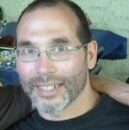
Noah Gans, PhD
Anheuser-Busch Professor of Management Science at Wharton, Professor of Operations, Information and DecisionsRESEARCH INTERESTS & WORDS OF WISDOM
https://oid.wharton.upenn.edu/profile/gans/
Research Interests: service operations, stochastic processes and the control of queueing systems
Noah Gans’s research focuses on service operations, and he has a particular interest in the management of telephone call centers. He has been Department Editor of Stochastic Models and Simulation at Management Science and the President of Manufacturing and Service Operations Management Society (MSOM). At Wharton, Noah coordinates the OID Department’s PhD Program, and he teaches an MBA core course on Business Analytics, as well as MBA elective courses on Analytics for Services and for Revenue Management.
1. Where did you go to undergraduate school and what was your major?
I went to Harvard College, and I majored in biology.
2. What inspired you to get a PhD?
Working as a management consultant, I never had the time to “get to the bottom of” many of the problems my work addressed. I thought that getting a PhD and becoming a scholar would allow delve more deeply and meaningfully into the types of business problems I was addressing at work.
3. What do you enjoy most about research?
I like being able to choose to work on problems and issues about which I am passionate, and I like being able to pursue those problems to a level at which I am satisfied with my understanding of them.
4. Why do you think academia is a good career?
At a day-to-day level, The variety of work in an academic environment is really stimulating. There are seasonal patterns in which I spend more time on teaching or research or administrative duties, and just when I start to get tied of doing one, it’s time to switch to the other. So I don’t get bored or burned out doing the same thing all the time.
At a broader level, academia is rewarding in that you can make an impact at a number of levels. Research can help advance the state of knowledge and practice and help to improving society. And although what and how we teach varies across the undergraduate, MBA, and PhD populations, in all cases, it’s gratifying to be able to share my knowledge and values with and learn from the students for whom I am an instructor.
5. When you are reviewing doctoral applications of students, what are you looking for beyond their academic record?
I am looking to see if the applicant has a good sense of what their field of interest is about. What are the questions of interest? How can they be approached? What is it about these questions that excites the applicant? This is a forward-looking complement to the academic record, which looks at past performance.
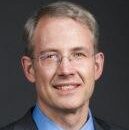
Karl Ulrich, PhD
CIBC Endowed Professor; Professor of Operations, Information and Decisions; Professor of Management; Advisor on Asia StrategyRESEARCH INTERESTS & WORDS OF WISDOM
https://opimweb.wharton.upenn.edu/profile/13/
Research Interests: environmental issues, product design and development, entrepreneurship, innovation
Karl T. Ulrich is Vice Dean of Innovation and the CIBC Professor of Entrepreneurship and e-Commerce at the Wharton School of the University of Pennsylvania. He also holds an appointment as Professor of Mechanical Engineering. His research is focused on innovation, entrepreneurship, and product development.
He is the co-author of Product Design and Development (5th Edition, McGraw-Hill, 2011), a textbook used by a quarter of a million students worldwide. His most recent book is Innovation Tournaments (Harvard Business Press, 2009). He is the winner of many teaching awards, including the Anvil Award, the Miller-Sherrerd Award, and the Excellence in Teaching Award at The Wharton School. At Penn, he co-founded the Weiss Tech House and the Integrated Product Design Program, two institutions fostering innovation in the university community.
In addition to his academic work, Professor Ulrich has led dozens of innovation efforts for medical devices, tools, computer peripherals, food products, web-based services, and sporting goods. As a result of this work, he holds more than 20 patents. Professor Ulrich is a founder of Terrapass Inc. which the New York Times identified as one of the most noteworthy ideas of 2005, and he is a designer of the Xootr scooter, which Business Week recognized as one of the 50 coolest products of the 21st Century. Professor Ulrich holds bachelor’s, master’s, and doctoral degrees in mechanical engineering from MIT.
1. Where did you go to undergraduate school and what was your major?
MIT, mechanical engineering
2. What inspired you to get a PhD?
My parents had PhDs. Saw benefits of academic career — flexibility, autonomy, challenge.
3. Why do you think academia is a good career?
You have a lot of autonomy and flexibility. Academia is as close to a pure meritocracy as there is — you are evaluated simply based on your contributions to teaching, scholarship, and service.
4. What is your advice to doctoral candidates as they begin their job searches?
Do not apply to a job that you will not seriously consider actually accepting. The job search is expensive for both sides, and you should focus on the jobs you are genuinely serious about.
STATISTICS AND DATA SCIENCE
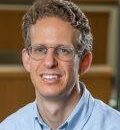
Dylan Small, PhD
Universal Furniture Professor; Professor of Statistics and Data Science; Department ChairRESEARCH INTERESTS & WORDS OF WISDOM
https://statistics.wharton.upenn.edu/profile/dsmall/
Research Interests: applications of statistics to public health, design and analysis of experiments and observational studies for comparing treatments, longitudinal data, measurement error, medicine and economics
1. Where did you go to undergraduate school and what was your major?
Harvard, Mathematics
2. What inspired you to get a PhD?
I was interested in pursuing a research career.
3. What is the most important (or an important lesson) you learned from a mentor(s)?
Be a finisher.
4. Why do you think academia is a good career?
Opportunity to work on problems of one’s own interest, independence, flexibility in being able to allocate one’s time, it is enjoyable to mentor students.
5. When you are reviewing doctoral applications of students, what are you looking for beyond their academic record?
A track record of being interested in research.
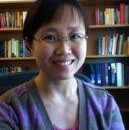
Nancy Zhang, PhD
Ge Li and Ning Zhao Professor; Professor of Statistics; Vice Dean of Wharton Doctoral ProgramsRESEARCH INTERESTS & WORDS OF WISDOM
https://statistics.wharton.upenn.edu/profile/nzh/
Research Interests: genomics, change-point methods, empirical bayes estimation, model and variable selection, scan statistics, statistical modeling
1. Where did you go to undergraduate school and what was your major?
I went to Stanford and got a major in Mathematics.
2. What inspired you to get a PhD?
I always knew that I wanted to go on to a PhD and seek a scientific career. When I got my undergraduate degree from Stanford, I was really excited about genomics and computational biology, but there were few PhD programs in that subject, it was too new a field. So I went to work as a software engineer in a Silicon Valley start-up that develops bioinformatics software for analyzing this new type of high-throughput biological experiment called “microarrays”. During this year at the start-up, I realized that my passion was thinking about and playing with data, and so I applied to PhD programs in Statistics. This was 10 years before “Data Science” became a thing.
3. What is the most important (or an important lesson) you learned from a mentor(s)?
There were so many lessons, it is hard to choose only one. I had the privilege of working with some of the brightest minds of my field at Stanford and Berkeley (where I did my Postdoc). One thing that I learned from these incredibly talented and accomplished people is that they are never afraid to admit that they “don’t understand”. One professor, Persi Diaconis, whom I respect tremendously, told me: “I wouldn’t be doing what I’m doing if I wanted to feel smart.” If you feel smart solving your problem, it is probably too easy and not worth your time.
4. What is an important lesson you learned from your students?
My doctoral students taught me to let go of command of a project and let them take it and run with it. It was hard at first, because every research project is like your baby. But nothing gives me more satisfaction than seeing my mentees take a problem that I was working on and “owning it”.
5. What do you know now that you wished you knew when you were pursuing your doctoral degree?
I completed my PhD in 3 years, I wish I took my time and did it slower.
6. What do you enjoy most about research?
I like the freedom of asking my own questions and setting my own priorities of what to spend time on. Also, I am thankful to be always surrounded by wonderful young people, especially PhD students who are some of the most visionary people you will ever meet.
7. Why do you think academia is a good career?
You get paid to be a student for life! Except… you have to also be your own teacher, as you will be trying to learn things that no one has the answer to.
8. When you are reviewing doctoral applications of students, what are you looking for beyond their academic record?
I pay close attention to recommendation letters. I look not only at their grades but also how challenging and intellectually diverse their curriculum was.
9. What is your philosophy about advising doctoral students?
Every doctoral student is different, and have their strengths and weaknesses. The advising for each student needs to be tailored individually.
10. What is your advice to doctoral candidates as they begin their job searches?
Never lose sight of your initial quest when you started your PhD: Why did you choose a career in academia instead of a high-paying job in the industry? If it is not for the money, then work on research projects that you truly believe in!
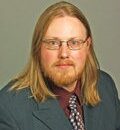
Shane T. Jensen, PhD
Professor of Statistics and Data ScienceRESEARCH INTERESTS & WORDS OF WISDOM
https://statistics.wharton.upenn.edu/profile/stjensen/
Research Interests: applications in bioinformatics, bayesian multi-level modeling, statistical computing and mcmc methods, statistics in sports
1. Where did you go to undergraduate school and what was your major?
McGill University in Montreal, Canada. I did a joint major in biology and mathematics.
2. What inspired you to get a PhD?
I met a professor in the mathematics department at McGill who was a wonderful mentor and really introduced me to the intellectual freedom of the academic environment. He was a strong adherent of the idea that you should keep learning new things for your entire life and that being a professor really facilitates that lifelong learning.
3. What do you enjoy most about research?
I never stop being exposed to new topics and I am always being pushed to learn. Statistics especially is a great field since similar models and methods can be applied across a lot of different data situations, so I am able to move between projects across a wide variety of applications from biology to sports to urban studies. It is difficult to get bored by my work when I’ve always got the option to delve into some new area of study.
4. Why do you think academia is a good career?
I value the intellectual freedom and time flexibility of an academic career. You have to work hard but you get to focus most of that hard work onto topics that you are interested in and passionate about. There are certainly a lot of other demands on your time as a professor, but you still have a lot of control over how and where you focus your time on a day by day basis compared to most other jobs. You will also be surrounded by really smart colleagues who will enrich your life intellectually!
5. When you are reviewing doctoral applications of students, what are you looking for beyond their academic record?
Prior experience working with a professor on a research project is very desirable as it gives evidence that the applicant has the enthusiasm and work ethic to undertake graduate-level research. We also look for signs of intellectual maturity and real curiosity towards statistical problems in the personal statements that we read.
Wharton Doctoral Programs Video Library
Hear Wharton faculty and PhD students share insight on preparing and engaging as a prospective and current doctoral student.
IDDEAS Research Activity
Practicing Research with PhD Student Mentors


